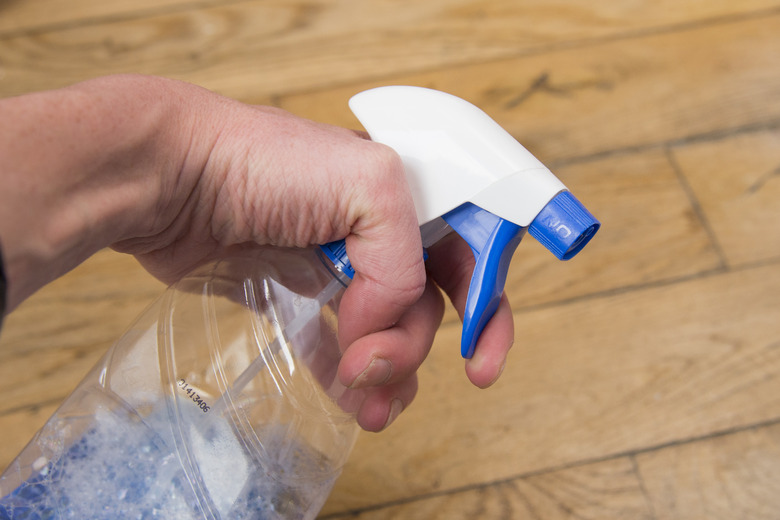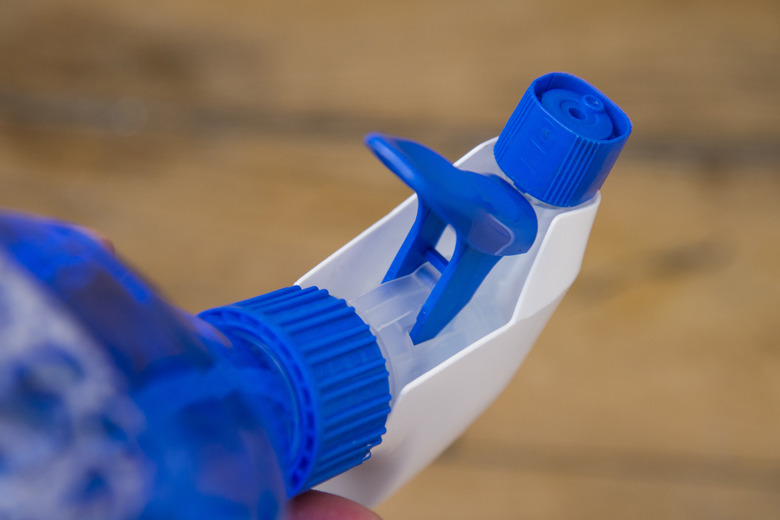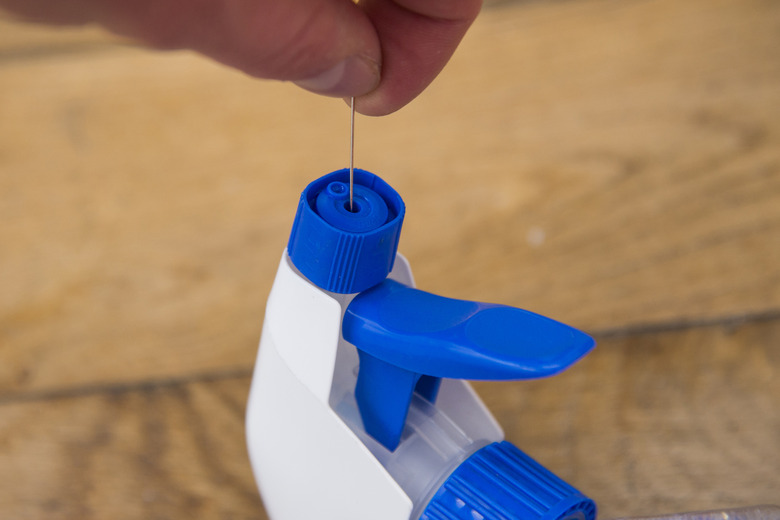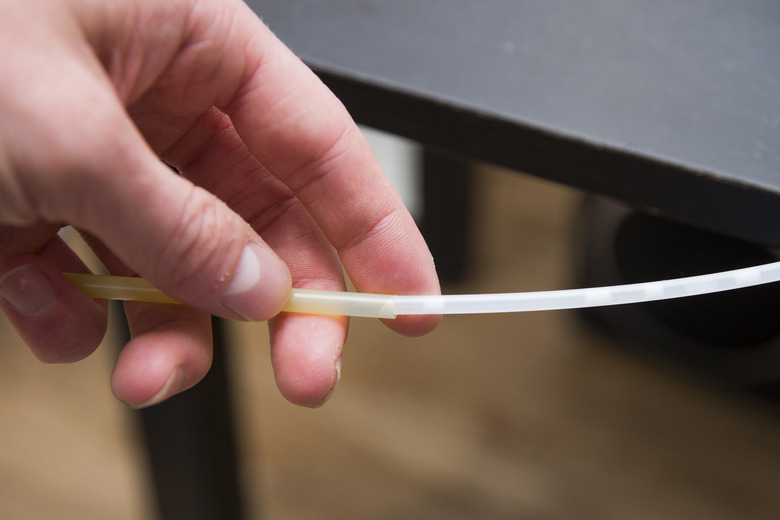How To Fix A Spray Bottle That Isn't Spraying
We may receive a commission on purchases made from links.
Many household cleaning products come in spray bottles, and the bottles are often designed in such a way to make it difficult to access the last bit of product. Not only that, but the nozzle can clog and the spray mechanism itself can simply stop working. Many of these problems can be rectified so you don't have to buy a new bottle of product, and you can save the empty bottle to use again. Here's how to fix a spray bottle that isn't spraying.
Why Spray Bottles Stop Spraying
Why Spray Bottles Stop Spraying
The operation of a pump spray bottle depends on a spring-loaded plastic piston operated either by a trigger or a vertical pump mechanism. When you pull the trigger or press the pump, the piston forcibly ejects the fluid in the piston chamber through the nozzle, which is usually fitted with a screw-on adjustment cap. The piston automatically retracts after each spray, creating a vacuum in the chamber that sucks more fluid from the bottle though the tube. If your sprayer doesn't work, it's either because the nozzle is blocked, the piston seal is damaged or the inner tube isn't immersed in fluid.
How to Fix a Spray Bottle That Isn't Spraying
Unblock the Nozzle
If your spray bottle contains oil or anything else that can harden, such as hairspray, you may have to periodically clear the nozzle. Before you do this, unscrew the nozzle cap by turning it counterclockwise a quarter turn and try spraying it again. If the nozzle was too tight, your sprayer may now be working. If not, unscrew and remove the cap and hold it under hot, running water or immerse it in vinegar, then use a pin to poke a hole in any blockage in the nozzle itself. If your bottle contains hairspray, soak the nozzle in alcohol. You may have to unscrew the entire sprayer from the bottle and soak it in vinegar or alcohol if the blockage is severe.
Lengthen the Tube
The plastic tube connected to the sprayer is designed to reach to the bottom of the bottle, but it often curls up, and the end protrudes from the liquid in the bottle when the level is low. You can prevent this with a one-foot length of 1/8-inch plastic tubing from a hardware store. Cut the existing tube so that only an inch remains attached to the sprayer, then push the 1/8-inch tubing over it and attach 1/8-inch metal nuts to the other end. The weights keep the tube immersed even when you tip the bottle on its side or turn it over.
Identify and Fix Other Problems
When you pump the piston and it doesn't retract, the cause is usually a broken or missing spring, but sometimes the spring just pops out of position. The spring isn't always accessible, but if it is, you can usually find a replacement at a hardware store. If the spring isn't accessible or the piston seals fail, you need to replace the sprayer. When the seals fail and the trigger works, but the sprayer delivers very little fluid, you may be able to improve the sprayer performance by spraying vegetable oil through it.
How to Prevent Spray Bottle Clogs
Clean the Nozzle
One of the best ways to prevent future spray bottle clogs is to keep the nozzle clean. Wipe the nozzle after each use to prevent the build up of product, dirt, and grime.
Store the Bottle Properly
Keep the spray bottle in a cabinet to keep dust and dirt away from the bottle and nozzle. If the spray bottle has a cap or cover, make sure to put it back on after each use.




